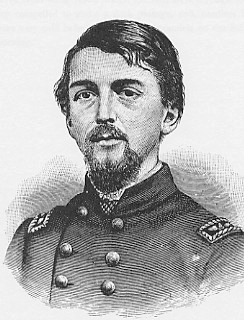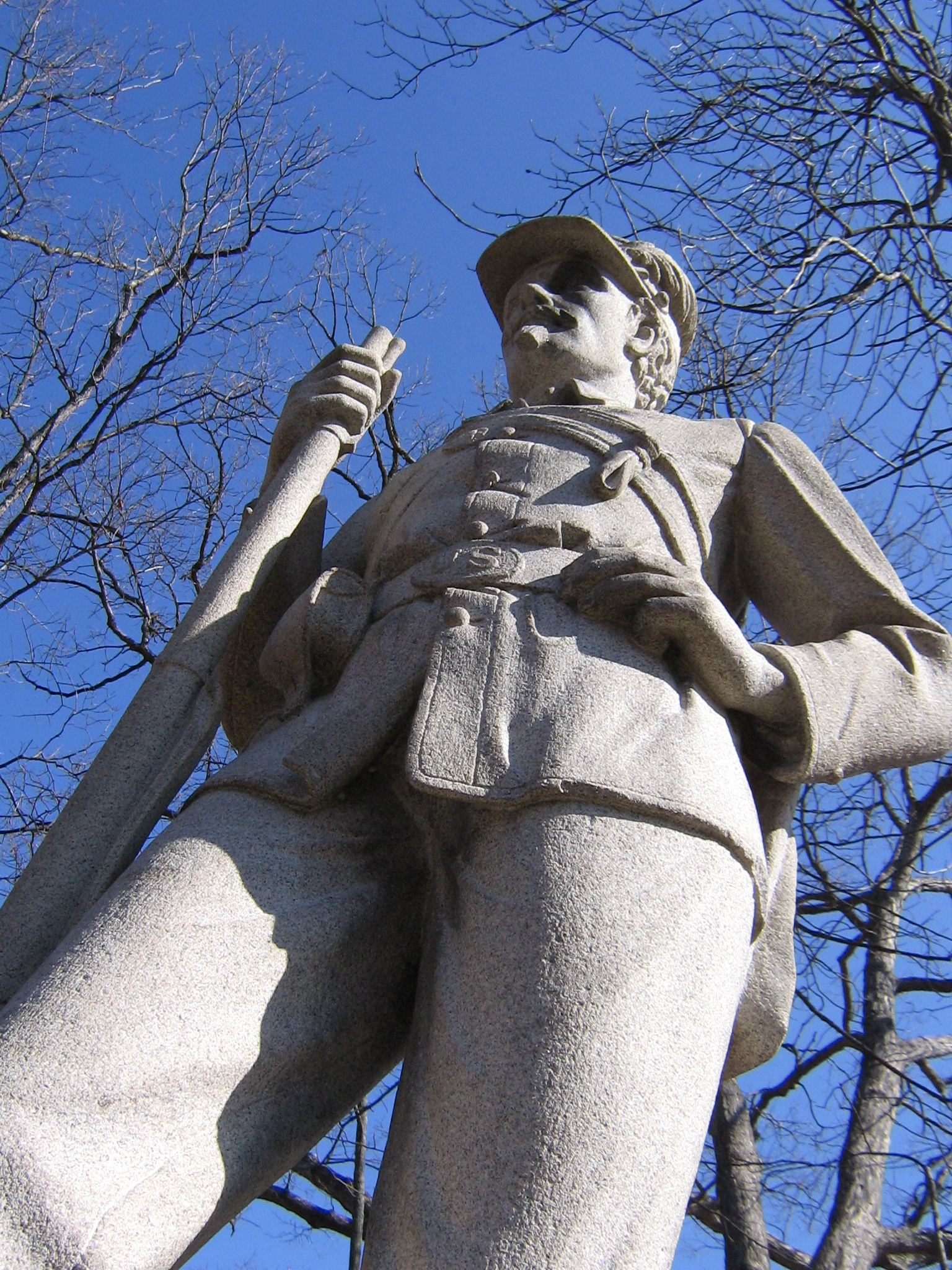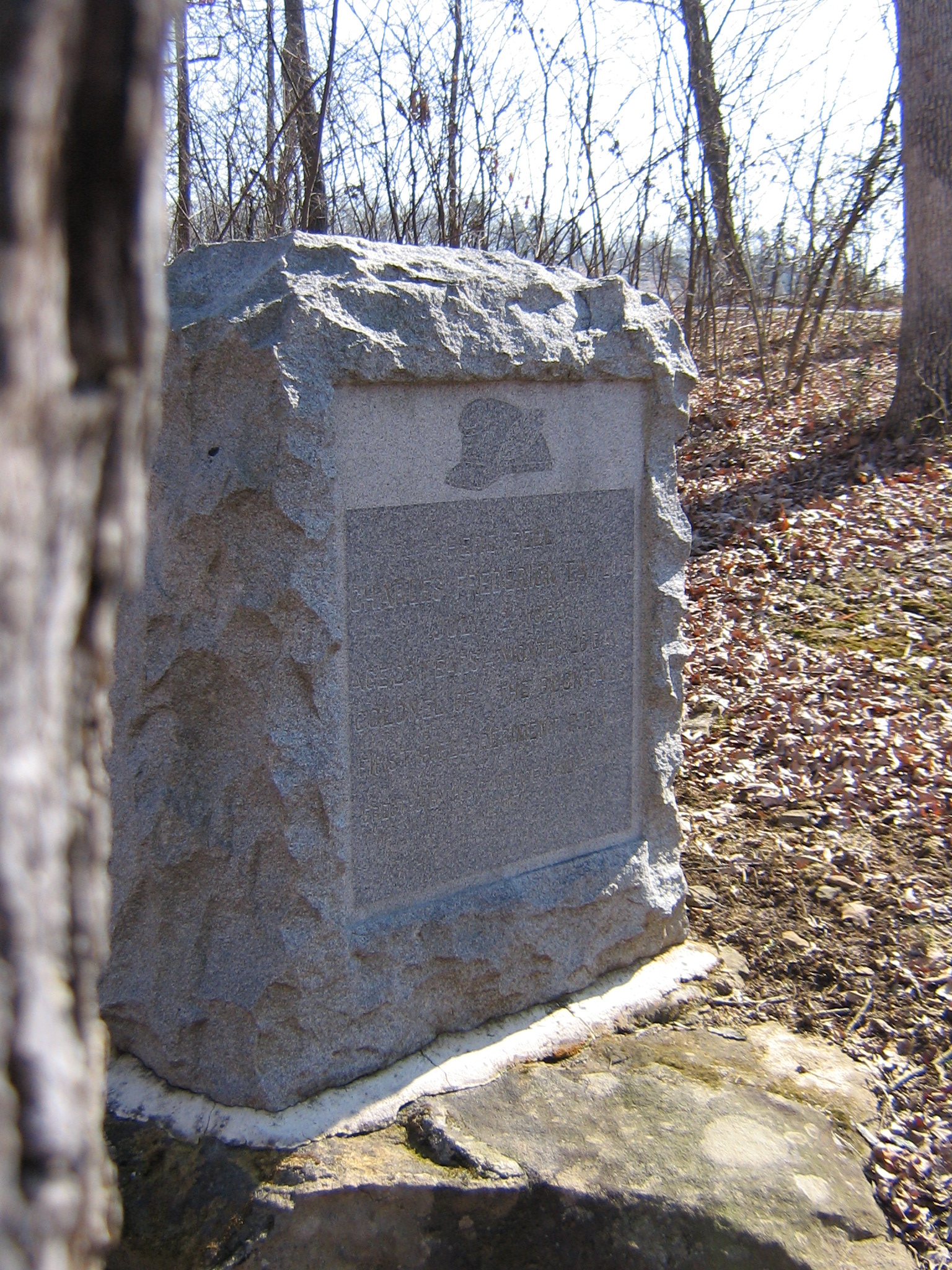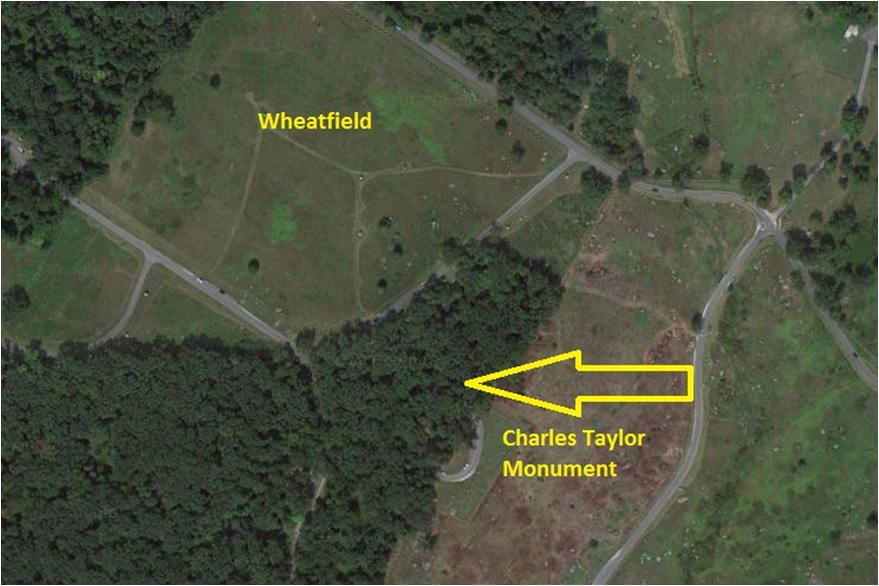Gettysburg Off the Beaten Path: The Death of Colonel Charles Taylor

Charles Frederick Taylor was born on February 6, 1840, in Kennett Square, Pennsylvania. In 1857 he became a student at the University of Michigan. His time as a student was short lived. Unfortunately the family’s farm fell on hard times and his father was severely ill. Thus, Charles returned home.
At the outbreak of the war Taylor threw his hat in with the Union. He joined Federal service at the head of Company H, 13th Pennsylvania Reserves (42nd Pennsylvania Infantry), better known today as the “Bucktails.”
He was captured near Harrisonburg, Virginia, on June 6, 1862. Quickly paroled, the young captain spent very little time as a prisoner. Although paroled, he was forced to sit out the war until November of 1862.
Being the ranking officer upon his return to the regiment, Taylor assumed command and led the men into action at Fredericksburg. On the morning of December 13, 1862, the men of the Pennsylvania Reserves spearheaded the Federal assault on the Confederate lines. The Pennsylvania Reserves opened the attack at Prospect Hill, five miles south of the city. Mud, Confederate artillery, and massed Rebel infantry wreaked havoc on the Federal’s plans. The Bucktails lost 190 men, including Taylor, who, was wounded in the shoulder.

The 1862 campaigns had been hard on the Pennsylvania Reserves. The division spent the early part of 1863 in the defenses of Washington, a much needed rest from front line duty. By mid-June though, Lee was pressing north towards the Potomac River. Two brigades of the Reserves were ordered to join with the Army of the Potomac.
Assigned to the 5th Corps, who had lost nearly an entire division to the expiration of enlistments, Taylor found his men approaching the northern end of Little Round Top.
With Little Round Top securely in Federal hands and the battle still raging in the Wheatfield, the Reserves made their way to the embattled Wheatfield. They were one of the last units to arrive in the sector. The Confederate’s had swept the field of Federals and were now poised to strike Little Round Top or Cemetery Ridge.
Riding to the front of the Pennsylvania Reserves was their new commander Brig. Gen. Samuel W. Crawford. Crawford seized the flag of the 1st Pennsylvania Reserves and shouted “Forward, Reserves!” Crawford’s men surged across the Plum Run Valley and into the mass of Confederate’s who has lost most of their unit cohesion, and were exhausted from the earlier battle. The Federals were able to secure the eastern side of the Wheatfield, while the Confederates pulled back to the wooded western side of the field.

In the midst of the action Taylor’s unit crested Houck’s Ridge and were about to enter the Wheatfield proper when “we received a heavy volley from our right-center.” Taylor and two other officers tried to move men to meet this threat and “called to them to hault [sic] & surrender.” A bullet slammed into his chest. “He fell, I was with him in an instant,” recalled Aaron Baker. “he told me he was wounded & asked for water after taking a little water – blood began to come from his mouth & he seemed to say something. All I could understand was “Mum” Mum.” I do not think he lasted two minutes.”
Taylor died on the edge of the Wheatfield. His body was later removed from the field and interred in Longwood Cemetery, in Kennett Square.
In November of 1905 Taylor’s men returned to Gettysburg and placed a monument near the spot he fell. Taylor was the youngest colonel killed in the Army of the Potomac at Gettysburg (Henry King Burgwyn, Jr. of the 26th North Carolina holds the sad moniker for the Confederate side).
To Reach Taylor’s Monument:
-At the Y intersection with Steinwehr Ave. make a slight right. This turns into US-15 S (also called the Emmitsburg Road. Follow for 1.8 miles.
-Make a left onto the Wheatfield Road.
-Follow the Wheatfield Road for 0.6 miles.
-Turn right onto Ayres Ave. and park on the right hand side parking pull off 300 feet down the road.
-Exit your car and follow the left hand side of the road. The monument is about 150 feet from the parking area.

Aaron Baker was my great great uncle. His brother was my great great grandfather. Where did you get that quote? Aaron was later killed at the battle of Spottsylvania Courthouse.